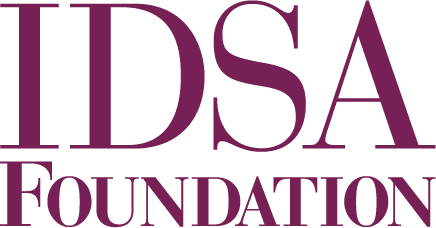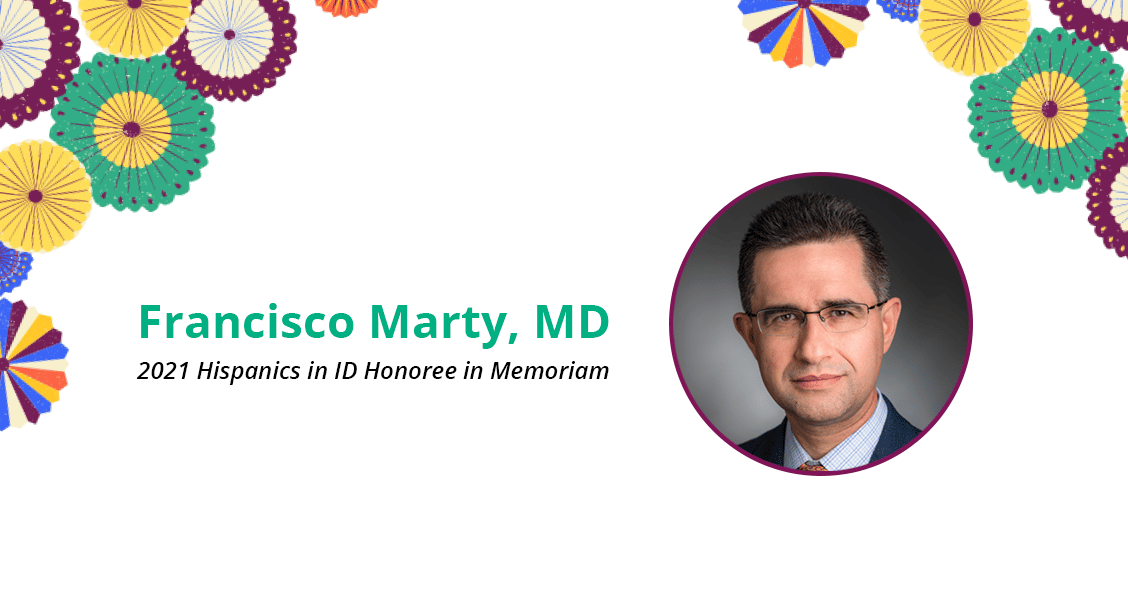IDSA Foundation Honors Hispanic Heritage Month with Dedication of Hispanics in ID Executive Conference Room
The Infectious Diseases Society of America Foundation recently announced the dedication of its new Hispanics in ID Executive Conference Room at its offices in Arlington, Virginia.
The dedication will serve to celebrate and recognize the achievements of current and former Hispanic trailblazers while raising critical funds to support the next generation of Hispanics in the field of ID.
“Recent census data suggest that about 16% of the population is Hispanic, and that number is growing rapidly. Yet out of the more than 90,000 students in U.S. medical schools, only 6.6% are Latinx or Hispanic,” said Carlos del Rio, MD, FIDSA, president-elect for the IDSA Board of Directors Executive Committee and executive associate dean at Emory School of Medicine at Grady Health System. “The physicians and health care providers who care for this population are not growing as fast, so there’s an important role for us to inspire the next generation and to attract more Hispanics into medicine, including infectious diseases.”
Each year, the Foundation will honor an individual who demonstrated a deep commitment to mentorship and engagement of Hispanic medical students throughout their career. The 2021 inaugural dedication is in memoriam of infectious diseases physician Francisco Marty, MD.
“Having Francisco as the first Hispanic doctor recognized by the IDSA Foundation makes us very proud and is absolutely aligned to how he always acted,” said Liliana Gamboa, sister of Dr. Marty. “He was an immigrant from Venezuela and was very attuned to the additional challenges immigrants, foreign-born physicians, minorities and women face in embarking on their careers in medicine in the United States.”
Dr. Marty was an associate physician at Brigham and Women’s Hospital and an associate professor of medicine at Harvard Medical School. While he practiced for more than 20 years, he was most recognized for his thought leadership in transplant infectious diseases and his critical role in testing the drug remdesivir during the early days of the COVID-19 pandemic. His clinical trials were among several studies that led the U.S. Food and Drug Administration to expand its emergency use authorization of the drug to include the treatment of all patients hospitalized with COVID-19.
Gamboa said Dr. Marty’s impact in the field of ID was best described by his colleagues in a eulogy written in May, which stated that “because of his brilliance and drive, he had a tremendous and durable impact in so many areas of infectious diseases, with seminal, practice-changing contributions in how we care for patients with CMV, COVID-19, influenza, respiratory syncytial virus, parainfluenza virus, human herpesvirus-6 infections, invasive aspergillosis, mucormycosis and other invasive fungal diseases, and composite tissue transplantation.”
The funds raised through the conference room will be directly invested into opportunities for Hispanic medical students. The goal is to incentivize, motivate and inspire applicants from diverse backgrounds and specialties to attend IDWeek, an annual conference that features the latest science and bench-to-bedside approaches in prevention, diagnosis, treatment and epidemiology of infectious diseases across the lifespan.
Each year the Foundation will host an abstract competition specifically for Hispanic medical students and award top applicants with grants to cover travel and other costs associated with attending the conference. The competition will be open to both local and out-of-state students.
“Francisco always went out of his way to support the career goals of immigrants, minorities and women, using his funds and looking for grants to support additional training and coursework,” said Gamboa. “The scholarships created by the IDSA Foundation to grant opportunities for Hispanic students and future ID doctors will be something he would feel elated about.”
The dedication of the conference room was announced during the Foundation’s virtual Hispanic Heritage Month celebration on Oct. 14, which recognized the achievements and contributions of Hispanics in infectious diseases. The Foundation will continue to prioritize equity and inclusion with programs and funding that cultivate a diverse ID workforce that mirrors communities demographically to ensure the best possible care across diverse patient populations.

